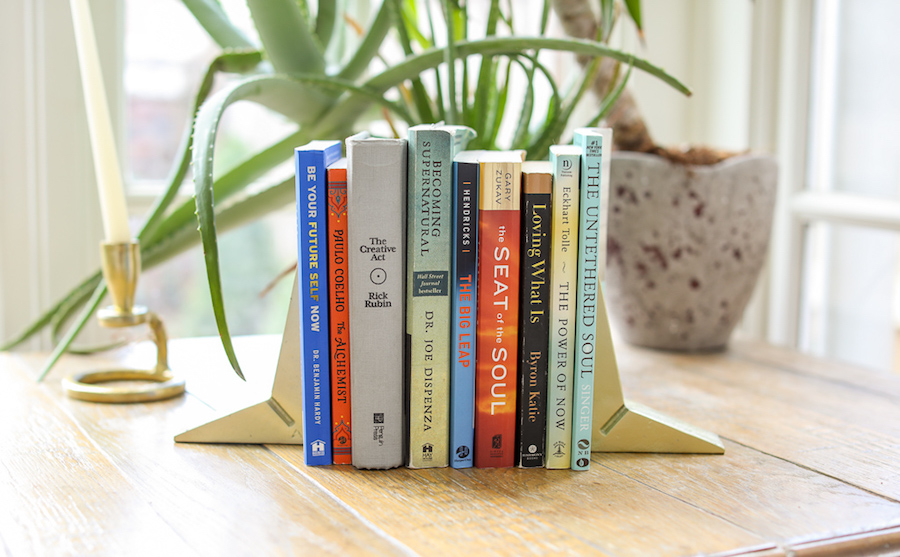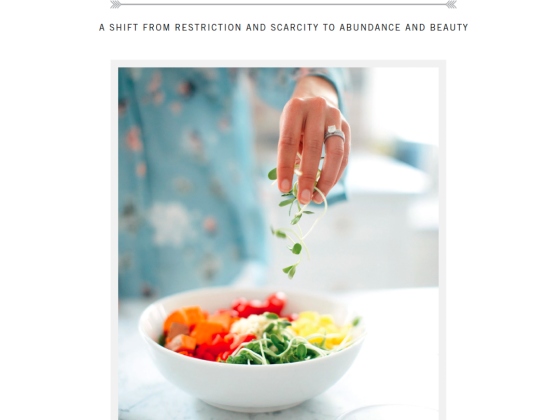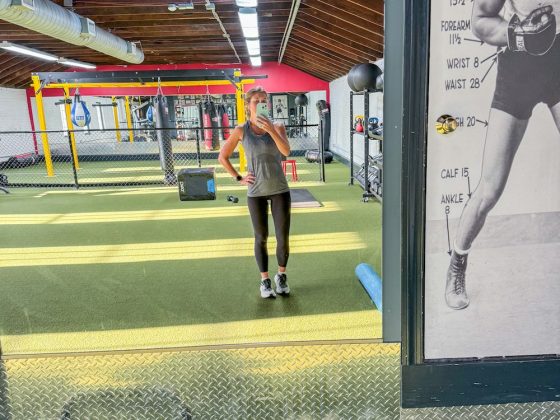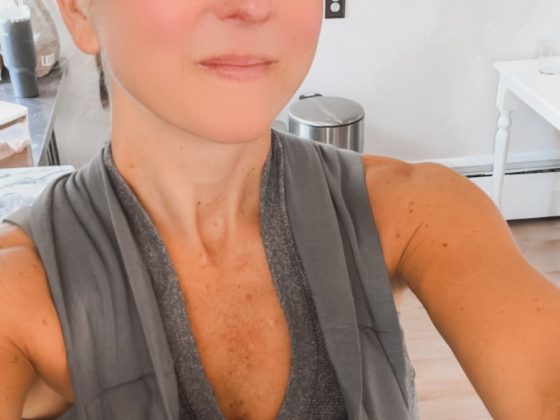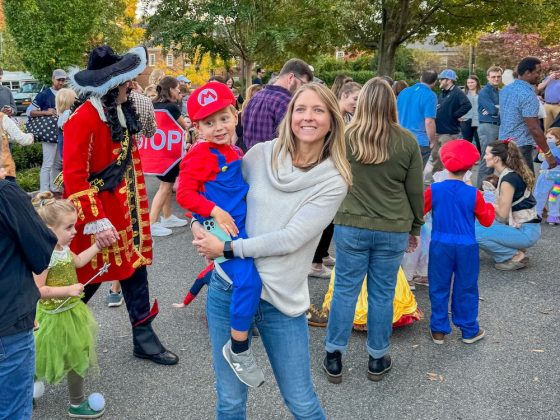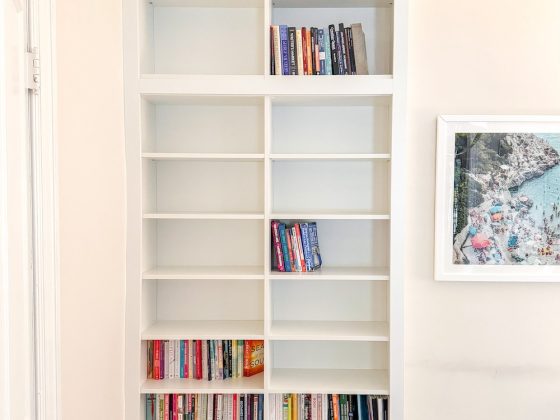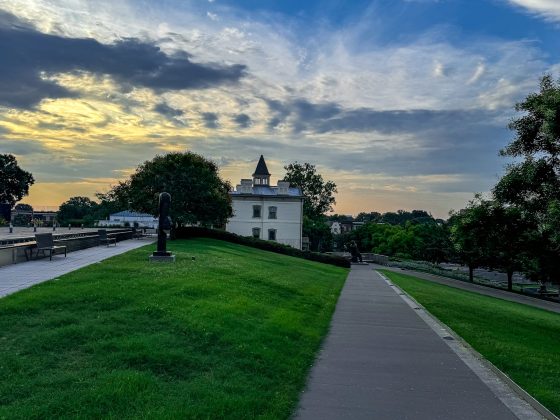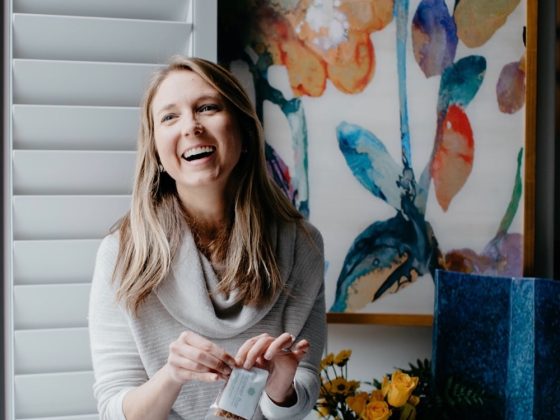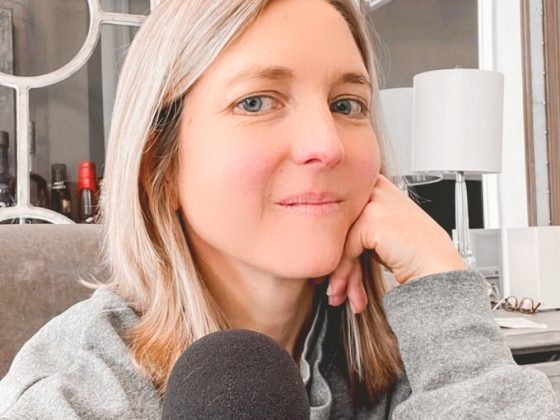The first self-help book I ever read was 10% Happier by Dan Harris. I picked it up because, despite so many things going well on the outside, I didn’t feel very happy on the inside. The ruminating thoughts kept coming: I should feel happier. What’s wrong with me? Am I a malcontent? Consistent contentment has always seemed out of reach and not really how I was hardwired. It’s as if I have always had to “work for” happiness. And work for it I did. It’s why I set myself up on a path of predictable achievement. I graduated from college, landed a corporate job, got married, even started my own business. When you hit certain milestones, society promises you will reap the reward of feeling fulfilled. Then you will feel happy. Right?
It doesn’t quite work this way. No matter the achievement, accolade, or admiration, if you don’t do the work on your inner world, there will likely be a mismatch between your inner and outer reality. Harris’ book was my introduction to the fact that this inner world even exists. Before reading his book, I don’t think I ever thought to separate my thoughts from myself. They were always there, dictating and influencing my every action and emotion without awareness that I could actually control the dialogue. I was sleepwalking through my life, operating on old programming because that was the only way I knew how to be.
Studies show that 35 – 50 percent of happiness is genetic. This creates your baseline. It also explains why some people seem naturally happier than others. Additionally, it means there is a good chunk of happiness that you can’t control, just as you can’t control your natural eye or hair color. The flip side to this finding is that their is a nice-sized piece of your happiness pie that you can control. Happiness can be developed and optimism can be learned. After understanding that happiness was more of a choice than a condition, I took it upon myself to do what I could to feel more content in this lifetime. Once I read my first self-help book, I did notice that I felt better, more at peace. I was hooked. I have read so many others since then, but there are those that have profoundly impacted my life more than others. I have even read some of these more than once. Here are the books that changed my life.
Loving What Is by Byron Katie
Katie introduces readers to her four-step, self-guided inquiry process she calls “The Work.” Through a series of simple questions, she encourages you to pinpoint thoughts that might not be serving you, question their truth, and create a “turnaround” that flips it on its head. For me, this book reiterated the idea that thoughts can be the source of my unhappiness, and more often than not, they are not even true. Without awareness for what those thoughts even are, we believe them to be true, thus allowing them to influence our emotions and behavior. By closely examining those stories in our minds, we have the ability to challenge their truth and shift our perspective.
This process has served me in both smaller, daily situations and bigger life circumstances – from complaining how long it will take me to complete a household chore, to grieving my father’s death. When I am able to get clear on the thought that is causing me distress, find the fallacy, and figure out what is true, I can let it go. Not only do I stop ruminating, but in that space I feel at peace and empowered to take action (whether that is choosing a different thought, or taking a step towards the person I want to be). The questions can be applied to almost anything, and when you are honest with yourself, you realize that a lot of suffering is self-imposed. The process does take emotional responsibility, which in turn takes courage, but it will change the way you think for the better.
The Power of Now by Eckhart Tolle
Over the course of my life, I have struggled with anxiety. This book provides a portal to freedom. There is a lot of power in the present moment. Tolle argues that not only is it all we ever have, but it is where we experience true happiness and the ability to live a more spiritual life. Just like our minds create stories about the present, it also tries to take us out of it; we remain shackled to the past, or anxious about the uncertain future. It is only when we live more in the present will we experience more freedom and peace.
A big source of human suffering stems from our ego – the thoughts, emotions, and identities created by the mind stories and self-image to which we cling too tightly. We all have a “pain body,” which accumulates over the years of human experience. But when we can observe our thoughts as objective observers, quiet the mind, and be present in the now moment, the practice dissolves the suffering and develops consciousness.
It is one of my greatest intentions to live a more conscious life. The Power of Now is the resource for anyone who feels the same. It sounds impossible to live purely in the present, and perhaps it is for most people, but that is why it is more of an ongoing practice. Tolle will provide you with the tools to live more in line with the Now. I also highly recommend his book A New Earth.
The Untethered Soul by Michael Singer
This book changed my life more than any others on this list from an exponential perspective. I was in the early stages of my self-development journey when I first read it, and I remember walking away feeling like a changed human being. So much so, that I bought about ten copies and mailed them to friends and family (which I never do). I even sent one to my brother who was in jail at the time; we are completely estranged, but I felt called to share this spiritual text with someone who needed to read it the most. I only tell you that to illustrate how much Singer’s message moved me. I have reread it twice since I first discovered it. I fully believe everyone should read it at least once.
Singer explores similar themes to the books mentioned above: consciousness, awareness, freedom from thoughts. Many people understand they have thoughts, but they aren’t able to separate them from themselves. We are not our thoughts. He offers eye-opening insights and realizations pertaining to this inner voice in our minds. When we can view ourselves as witness of our thoughts, rather than one in the same, we can better understand how we operate, putting us back in control of our emotions, actions, and behaviors. This ability to observe our thoughts becomes particularly useful when we are faced with resistance and other uncomfortable emotions. When we become more conscious, we are more likely to overcome blocks, let go of limiting beliefs, and live with more freedom and peace.
I wanted to include all of his books here because every single one has been life-changing. Once you read The Untethered Soul, I suggest subsequently reading The Surrender Experiment and Living Untethered. I am even currently working his guided journal in the mornings, which has been a meditative addition to my journaling practice.
The Seat of the Soul by Gary Zukav
When I was first reading The Seat of the Soul (another one I have read twice), I had also just been introduced to concepts such as alignment, intuition, ego, the inner voice. The book perfectly coincided with what I was learning, both in general and about myself. I was deep into my self-exploration phase at the time, and hearing Zukav’s message about our soul’s evolution to more authenticity added a needed layer to my inner work.
For so long, whenever I would feel an uncomfortable emotion, I would immediately ask what is wrong with me? Zukav states that our emotions are powerful indicators of alignment – and misalignment. I not only started to feel more compassionate towards myself, but also trust my feelings. I used them as information rather than something I felt like I needed to fight against. They were guiding me towards my true self. Our souls contain an inner wisdom, and if we listen, we will be directed down a path of spiritual growth. The foundation for this process is once again awareness. Awareness sets the stage for living with more intention, choice, and emotional responsibility. When we increase our consciousness, align our actions with our authentic self, we are able to co-create a more fulfilling and spiritual experience on Earth.
The Seat of the Soul on Amazon
Becoming Supernatural by Joe Dispenza
This is a self-development book that blends science with spirituality. If you love to nerd out about neuroscience (like I do), especially as it pertains to the mind-body connection, consciousness, and quantum physics, you will love what Dispenza teaches. He brings a unique depth to how much our thoughts and emotions affect our physical body and health. Meditation and other mindfulness practices become important tools for achieving a holistic harmony between mind, body, and spirit, and ultimately help individuals in their journeys of healing and transformation. The concept of neuroplasticity – the brain’s ability to rewire itself based on experience – is a crucial understanding of his work. With awareness, humans can change their thoughts, adopt new beliefs, and affect positive life change. He uses case studies, scientific research, and personal experience to support his theories and illustrate his findings. As a result of reading this book, you will walk away feeling empowered, more in control, and open to expand your consciousness beyond conventional thinking.
What impacted me most about this book pertained to the power of our thoughts. From a physical health perspective, Dispenza outlines a cascade of physiological reactions that take place after we think a thought. Not only can negative thoughts drive inflammation in the body, but energetically, our thoughts shape our beliefs, which in turn create our reality. Before increasing my consciousness for these concepts, I felt like I was a passive participant in the unfolding of my life. I never knew that I could actually choose and control the constant inner voice in my mind. This book helped me realize that from any moment, I could proceed as someone I wanted to be, not just who I was because that was who I had always been.
Becoming Supernatural on Amazon
The Big Leap by Gay Hendricks
I had many “aha moments” while reading The Big Leap. It was as if light was being shown on some major blocks I was facing in both my personal and professional life. But to have Hendricks reframe those blocks as being self-imposed was enlightening and empowering. If I was the one to blame for building the blocks in the first place, that meant I was responsible for removing them. However this is where the work starts. After you identify as someone who has what he calls an “Upper Limit Problem,” you must then uncover the limiting beliefs that are preventing you from reaching your full potential. Fear, feelings of low self-worth, or having a scarcity mindset are examples of barriers to experiencing higher levels of success, fulfillment, and happiness. He also argues that without doing the work to get to the root cause of our Upper Limit Problem, even if we were to achieve some external goal or circumstance, there is an increased chance we would engage in self-sabotaging behavior to bring ourselves back down under our “limit.”
I am someone who sets high standards for myself, but can often feel “blocked” on a path to achieving my goals. I can feel energized outside my comfort zone, but it’s not long before I want to cozy back inside of it. What I realized after reading this book is that more often than not, I am the one who is holding me back. Cultivating a more abundant mindset is something I have to work for; it doesn’t come naturally for me. This book gave me the gift of awareness of how my limiting beliefs were creating the blocks in the first place. There is power in responsibility, especially when it comes to personal growth and creating the life you want to live. The Big Leap will not only inspire you to take more responsibility for your life, but also offer tangible tools and takeaways for getting out of your own way.
Atomic Habits by James Clear
This book probably needs little introduction. Having sold more than 15 million copies worldwide, I am even assuming you have read it, or at least heard of it. There have been multiple books written on the topic of habit formation and the compound effect; the phrase “small changes leads to big results” – the premise of what he preaches – could even be considered cliche. But his direct, relatable, and conversational tone makes for an easy and inspiring read. When we want to change, humans have a tendency to immediately set sweeping and often unrealistic goals. Atomic Habits acts as a permission slip to take baby steps. Eventually, these small, incremental changes will lead to transformation without the overwhelm.
Two elements of a self-help book I find, well helpful, are when the author provides scientific research to back up his conclusions, as well as tangible action items for applying the information. Clear offers both. What I find most insightful is that he pulls in the concept of identity; because our habits are so tightly tied to our identity, we must make mindset shifts around who we are, and who we want to be, in order to cultivate change. Only then will change become consistent and sustainable.
There have been many times in my life when I have chalked up my failure to change to a lack of willpower. Yet it’s not really about willpower. There is so much more to it than that. He breaks down the crucial components of habit formation such as the habit loop, laws and layers of behavior change, roles of identity and environment, which provide further understanding of the depth and complexity to change. Lastly, as a former perfectionist, whenever I would experience setbacks, a lot of guilt and shame would ensue. Clear encourages readers to embrace this part of the process. Progress is more important than perfection, and habits can be continually tweaked over time. What also makes Atomic Habits so relatable to many people is that the information isn’t confined to one area of life (health, productivity, relationships), but rather can be applied across them all.
The Alchemist by Paulo Coelho
I bought this book long before I read it. I have realized that sometimes you aren’t ready to read a certain self-help book. This can show up in the form of resistance to read it at all, or perhaps you start reading something and have to soon put it down. That has happened to me a couple of times (Elizabeth Gilbert’s Big Magic is an example of a book I had to put down. Then when I returned to it a couple of years later, it better aligned and I devoured it).
Initially, I don’t think I understood how the story outlined in The Alchemist could assist me in my self-development journey, but it perfectly paralleled with what I was going through at the time. I had been searching for something, but I was in a bad habit of looking outside of myself for answers, attaching my worth and sense of fulfillment to what I achieved, other people’s approval, external circumstances that proved I was enough. As I read, I learned lessons right alongside Santiago – lessons on listening to my heart, tuning into my intuition, and trusting the process. The Alchemist is a must-read for anyone embarking on a journey of growth and development. The story explores important themes one will experience on any path of self-discovery and transformation. Readers will walk away feeling more inspired to pursue their dreams with persistence and an open heart.
The Power of Regret by Daniel H. Pink
I first learned about this book on Cathy Heller’s podcast. She was interviewing the author, Daniel Pink, and after their conversation I immediately bought the book on Amazon. In contrast to my (more optimistic) husband, who prides himself on having “no regrets,” there are definitely a few things I have regretted along the way: choices I made, people I associated with, paths not taken, giving up on something due to fear/self-doubt/lack of self-worth. I don’t harp on them per se, but the residue of these regrets still lingers in the background of my psyche. I try not to overthink it, while also reframing any regret with gratitude. I really like where I have landed in life, so in essence, things have unfolded as they should have. Otherwise, who knows where I would be.
Pink’s book takes the reframing even further, and even labels regret a “misunderstood emotion.” Regret can actually empower our future decisions. Hindsight is 20/20 after all, so if you didn’t like the way something shook out, or you got in your own way in pursuing a goal or dream, perhaps use that regret as fuel to more forward. Instead of giving up, remain persistent; instead of falling back into former, destructive habits, make another choice; instead of allowing old programming to dictate your behavior, play the whole tape, visualize your desired outcome, and take aligned action from there. Realize that you actually have more control over your life circumstances, and when you can apply the lessons learned from past mistakes to your current circumstances, that’s where the magic happens.
I now use this mindset all of the time; in fact, I am using it right now. One of my biggest regrets was when I stopped blogging over ten years ago. I told myself I quit because I moved into an apartment without internet (a barrier for sure), but in reality, I allowed my fear of how people perceived it overshadow my love for writing in the first place. There have been many times when this old fear rears its ugly head, and still make me question my creativity. I have found myself doubting Healthified (both the magazine and the podcast), and wondering what is the point? Who is reading/listening anyway? But then I remember my earlier regret. I let go of those thoughts and keep going.
Be Your Future Self Now by Dr. Benjamin Hardy
I am a big believer in the power of visualization, and I have gone through a major manifestation phase (technically, we are always manifesting, I am just not as active in my practice at the moment). I love the idea of envisioning who I want to become, and using that vision to help guide my present day decisions, actions, habits, and behaviors. I have used similar teachings in my health coaching practice. In essence, this book spoke to me, and I am so happy I discovered it.
When it comes to the concept of a future self, so many people struggle with being able to picture him or her, or put “that person” into words. As humans, we can easily recall who we have been, but who we will become is a little more complicated. Try reverse engineering it – think about who you are now, and who you were ten years ago. Are you the same? Slightly different? Drastically different? I feel as if I am a completely different person at 38 than I was at 28, and night and day different than I was at 18. Hardy argues that there is so much power in our future selves. In fact, it is our future self that should be in the driver’s seat of our current reality.
If you find it difficult to completely envision who you want to become one year, five years, ten years down the road, I bet you could think of changes you would like to make about your current self. Start there. Has your future self already incorporated those changes you want to make? What steps did “current you” have to put in place to then become “future you?”
This book prompted a realization about my personal future self practice. As I mentioned above, I have been thinking of it in terms of the actions, habits, and behaviors I want to embrace in order to continue to evolve. But what about the way that I am thinking and operating in my daily life? What is the attitude and essence of my future self? If there is a gap between who I am now, and who I want to become “then,” the answers lie on this fundamental level of my future self. A helpful exercise that has helped me is writing a letter from my future self to my present self. Date the letter one year from now, address it to who you are today, and then start writing. The voice and tone of the letter should help shape and shine light the energy of your future self.
Be Your Future Self Now on Amazon
The Creative Act by Rick Rubin
I almost want to say I saved the best for last. And while each and every one of these books has impacted my life (which is why they made the cut), The Creative Act is one that gives me chills just thinking about it. Bold statement, but it is true. However, I need to preface this one and say it might not be for everyone. While I believe we are all creative beings, not everyone identifies as “a creative.” I sure didn’t for decades. It is only in adulthood when the concept of creativity has started to fascinate me, and I am relatively new to embracing that side of myself.
This book was lent to me by my husband (who is also a creative), and we have both reread it a couple of times. It will probably be a book I read every year. It is told in snippets – short paragraphs of inspiring messages pertaining to the creative process. It is a beautiful blend of creativity, spirituality, and self-help. I almost refrain from calling it a “self-help” book, but I know that is what it is, because it has helped so many. It definitely helped me. As the title explains, it is a book for artists on the subject of creativity, but it is also a book for people on the way to be.
Before reading The Creative Act, you could say I was in a rut. Professionally, I felt stuck and uninspired. One read of this book and I suddenly felt less stuck and more inspired. While it wasn’t a cure-all, it ignited a spark and helped me return to myself. Ironically, while I think Rick Rubin set out to inspire others with his words, I truly believe he wrote it “in service of art.” For that reason, I also think that is why the book has been so successful and touched the lives of many people. I would almost be doing it a disservice by attempting to summarize it any more than that. You really have to read it for yourself.

